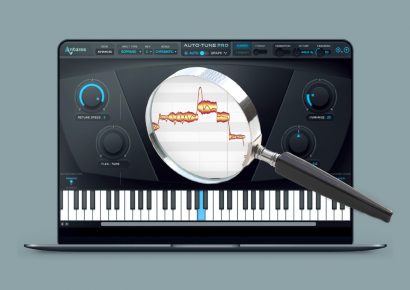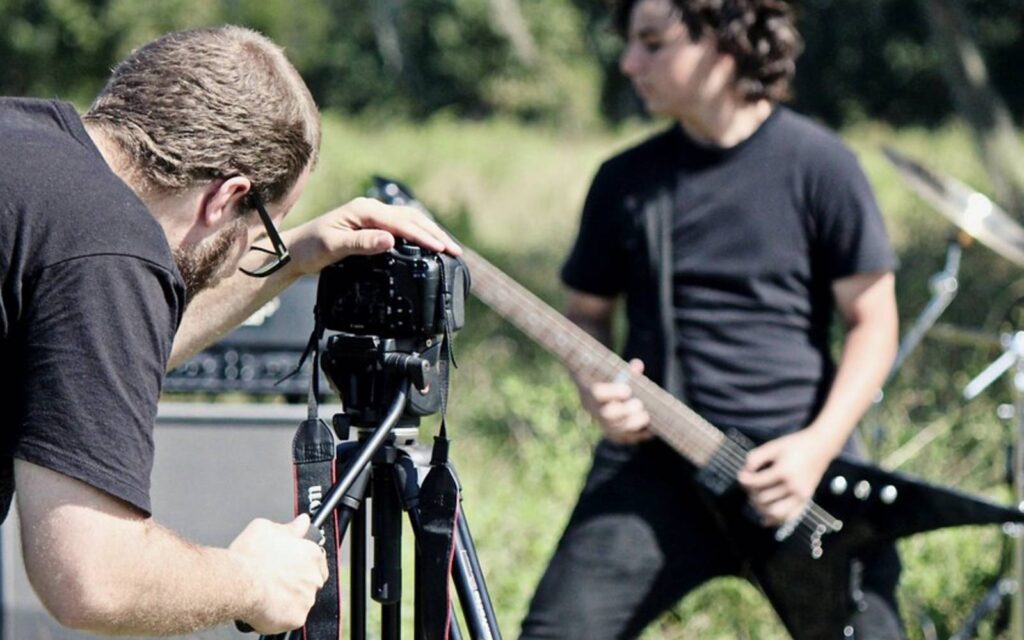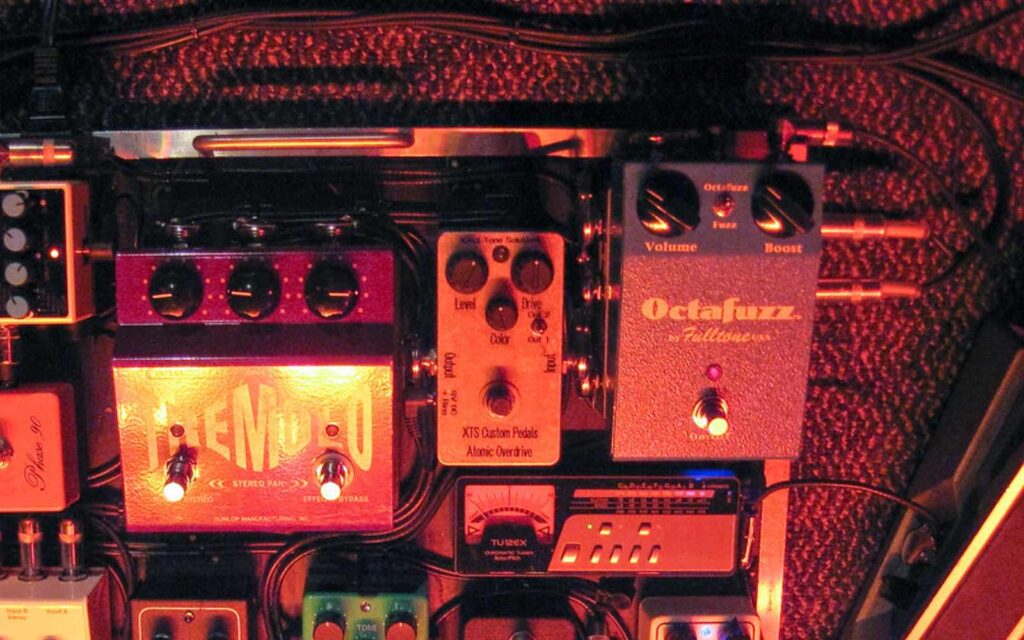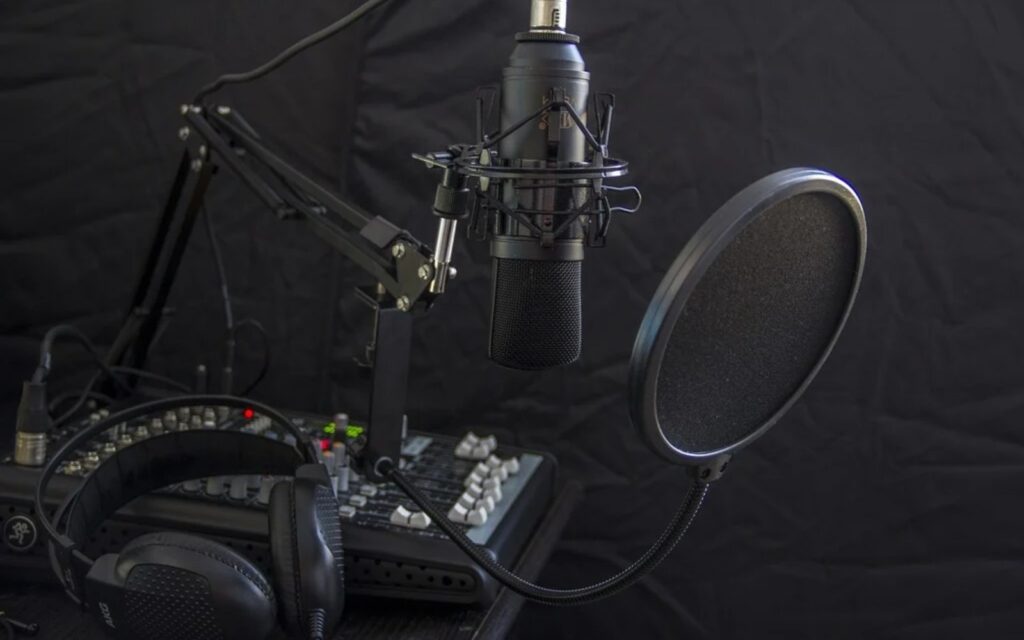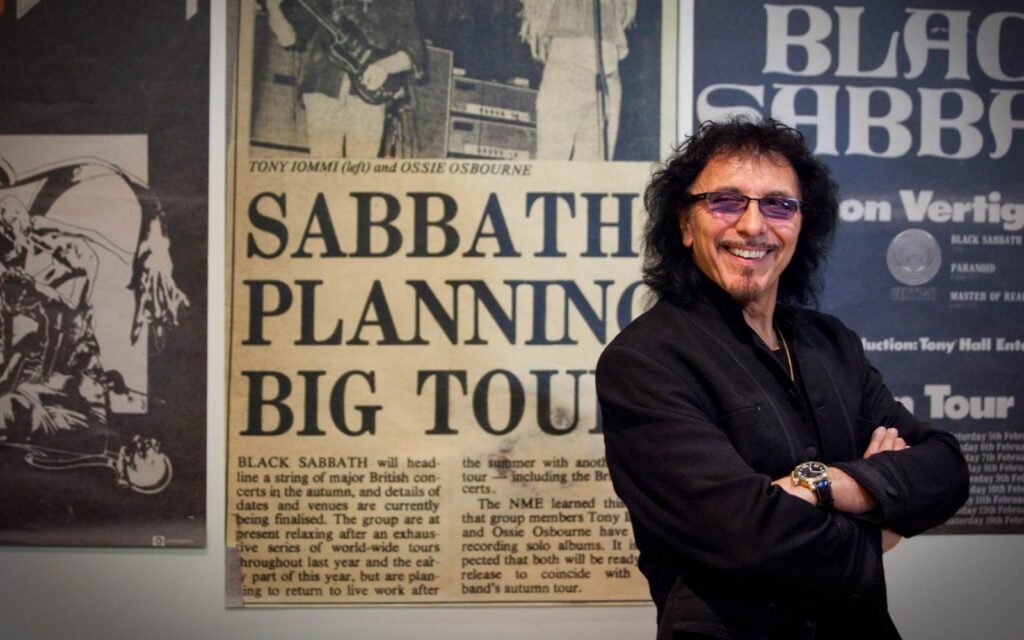Also chatting about music gear, the ghost of inspiration, working with other songwriters, setting up stereo pairs and more!
New Jersey born and bred Jack Antonoff is an extremely accomplished professional musician and producer. Talking about only works released in 2021, Antonoff has produced music with Lorde, Lana Del Rey, Taylor Swift, Sia and Clairo, not to mention his own solo work, under the name Bleachers.
With this impressive resume, you’d think he’d be pushing albums out in weeks, but actually, the process is a bit more complex than that. Antonoff’s new record through Bleachers, Take The Sadness Out Of Saturday Night, took him almost four years to complete.
Read up on all the latest interviews, features and columns here.
“I told the Bleachers people I’m gonna get better quicker but these things take me a really long time.” Jack says, adding “Everyone’s always like, ‘you clearly take you time and this’, I fucking would love to release more albums. I can’t seem to get them done quicker. You know, they just really take me a long time. Sometimes I work with other people and [through] that process I can do them quicker, I’m always working on my albums and they always take a long time to crystallise.”
“When I’m at home, you know, I can do anything I want, no one can see in, and I can dare to suck.”
Jack’s music through Bleachers is a maximal pop endeavour, which is a continuation of his work as lead singer of Steel Train and guitarist of Fun, who had that really big, grammy winning song ‘We Are Young’. His work often feels very nostalgic, which is extremely evident on the track ‘Chinatown’ from the new record, which features none other than Bruce Springsteen.
On this nostalgia, Jack describes it as “a means to go forward. I talk a lot on this album about going home to find a future. Recognising a way that you felt that you no longer feel capable of feeling. I think it’s a tool to find the future, the things you miss about yourself – It’s not about going back, it’s about redefining them and locating them within the possibility of them happening again.
“I usually write a lot from that lens. I think of it like a tool. Even things that seem really nostalgic are not to me. Even old songs I have like ‘I Miss Those Days’ the lyric is “I know I was lost – but I miss those days”, it’s more talking about finding love for yourself when you’re lost in the future. Looking back to look forward.”
Going home to find a future feels very applicable when Bruce Springsteen, a fellow New Jersey singer songwriter features on your album. Jack can’t recall how they actually met but says “[Bruce] and his wife Patti became very important people in my life as humans and as artists, because I just don’t know people who have nailed both sides the way they have. Such brilliant and vibrant artists, such admirable humans.”
“We just became friends and our collaboration was born out of that. Just playing each other records and hanging out, one thing leads to another, which is where good collaborations come from you know, the idea especially with an artist like him, who is so present as an inspiration to me, you can’t really plan those type of things, to be real cooked and weird sounding.”
Jack is originally from New Jersey but resides just across the pond in New York nowadays. He works out of his home studio and the famous Electric Lady Studios, which he often reps on a branded T-Shirt. Talking about how his process differs between the two, Jack says “I’ve been bouncing back and forward. When I’m at home, you know, I can do anything I want, no one can see in, and I can dare to suck.”
“When I’m here, I’ve got a little bit more armour, a little bit more ego and you know, you walk in, you come upstairs. Even though you’re left alone, there’s something slightly more performative about it, and I need both. I always needed both. When I was growing up in my parents house, I would work in my room, then I would setup in my sisters room, then I would setup in the basement, and then I’d go to the garage, you burn out spaces pretty easily you know. You gotta move on and move on and move on to keep chasing it.”
At his home studio, Jack has a pair of microphones setup high in the corners to capture whatever he’s doing in the room, not unlike what you would do when recording drums to obtain some extra character in your recording. This process extends past the 4 walls of his studio too, on which he says “wherever I go, I usually put up a stereo pair so I can capture the best version of the sound of the room. So often you’re doing something and you’re like ‘this is so cool’, I wish I also had the sound of the room going. It’s a good thing to have. Anyone who records at home or anywhere, why not put up a stereo pair, which could be cool cheap mics and just have the option to record whatever the hell’s happening in the room.”
Having this option allows for additional elements to be recorded in your track, for instance capturing vocals in the control room of the studio, which is sometimes where inspiration strikes. Jack seems to not understand where that inspiration comes from much like the rest of us.
“It’s pretty random, and it frustrates me endlessly. There’s no thing, it’s not a guitar, it’s not a synth, it’s not a drum, sometimes I start a song humming in my head, I’ll come up with lyrics, sometimes i’ll produce a whole thing and that’ll inspire me to write. It’s such a ghost, and I’m sort of at this point, resigned to the fact that thinking you have a hack on how to get there, not for other people, but even for yourself is kind of an embarrassment.
“It just comes wherever the fuck it comes at this point. I try to surround myself with all the tools. I see myself as a person with a little net, trying to catch em you know? It’s not every week, once every rare in a while, it’ll be like ‘oh I got one I got one’. I remember the moments when I get them, It’s really exciting. I remember getting certain lyrics or tying certain things together.
“I think that’s what’s exciting and also maddening about this work, is to be comfortable with the idea that you might work on something for 100 hours, and then have an idea that is bigger, better, more beautiful in one second and you have to move on from that 100 hours and just explore that new idea, that’s what it is.
“People make a lot of bad work because they can’t let go of what went into making that thing, but it really doesn’t matter. It could not matter less, It’s not the trade we’re dealing in. Nobody gets points for hours spent on their art, it’s just if it connects or if it doesn’t. If you get that feeling, and you got it out, and it makes sense, and it speaks to you … you’re just trying to do that.”
“If it speaks to you, it’ll speak to people.”
“It took me years to find peace there, but that’s an endless journey. Maddening, maddening concept. We do a thing that we can’t do! I can’t sit down and write a song, I could but it wouldn’t do the thing that I need the song to do, that sort of magic. I could write a verse and chorus and tell a story, I could modulate the end, and do all these tricks but they don’t matter, I think that’s why I keep coming back. That’s why it’s so thrilling to me. You just don’t know when it’s gonna hit you.”
Being a multi-faceted artist, working as a producer, singer, songwriter and performer, Jack looks up to Brian Eno and Jeff Lyne, who both encompass those skills entirely. Although his inspiration behind creating music is, as he describes “a ghost”, these two are his “biggest inspirations. I feel like I’m in an uncharted zone, where some people are like, ‘well what is it, are you a songwriter, artist and performer or are you a producer?’ It’s kind of like, what if it’s really both?
“Those are the only two who I can draw on, not that you need an example, I’m like ‘oh, think about Jeff Lynne’. That’s what I’m out here trying to do. ELO [Electric Light Orchestra] is the real deal. His productions are the real deal. It doesn’t have to be that one is on the way to the other. Even as a kid before I was interacting with fielding the question, I always loved those two, because I was like, I see what they’re doing on both sides.
“Neither one is the less than, neither one is the day job. I always think it’s so uninspired when someone’s like “Oh I do this, but this is my real shit.” Then why do the other thing? You know I really, really love both sides of it and I wouldn’t take up space if I didn’t want to.
“I find my work to be very different, not necessarily inspired specifically by them but it’s the concept of what they created, where there’s a lot of dignity and honesty on both sides and it’s not a road leading somewhere, truly that’s the work, production and artistry. And they’re both like really good.”
And Jack’s really good too. His work with St. Vincent and Taylor Swift has won him Grammy awards as a producer and songwriter. When prompted about the different mindset he’s in whilst working with other artists as apposed to his Bleachers stuff he says “They’re so similar and so opposite at the same time.”
“My body is doing the same thing when I’m at the studio, I’m working on gear, I’m thinking you know, they just come from different places. I feel like then they bleed together,” he says, adding “What I do with a collaborator, I try to do for myself. But then I still bring in a producer to guide me along. I’m not totally in tune with my process at the moment, I just do it, and then it’s like a little bit of a dream sequence. A lot of times I’m not really sure how things happen, especially when I’m alone and just writing.”
Now, this wouldn’t be a Mixdown interview if we didn’t press Jack for his gear of choice, which he actually loved talking about. His choice of microphone for vocals is a Wunder Audio CM7, which is a microphone created in the image of a Neumann U47 tube condenser, one of the most famous vocal microphones in history.
“It’s sacrilegious to call it [better], I wouldn’t call it better than a vintage U87 or U47. I just feel like, for what I’m trying to get, and the amount of room I’m trying to use, and the little amount of compression that I like to do on vocals, that mic just does it for me. I work a lot with tape delays and I like the way it interacts. I’ve recorded with enough 87’s to know there’s this magic that sort of flows through them, but there’s also a lot of weirdness that flows through them that I don’t want. Something about the way the CM7 works with the lack of compression that I use.”
Along with the CM7, Jack has some pretty strong opinions about Roland Juno and Moog synthesisers. Saying “ironically I use a Model D for way more high end stuff, most of my low end is coming off a Juno-6. I think it’s more beautiful. I think the Moog low end [sounds] like [there’s] cynicism in it, a little bit more harsh. The Model-D I’m constantly using for slinky high end things or even percussive noise sounds. So much of my low end comes off a Juno-6 – which I like better than a 60 or 106. I’ll play it a little grittier and then I’ll filter it afterwards, so i can play it with the chorus, and then sort of wash out some of it.
Finally, Jack talks about the things he reaches for when creating his unique sound. “If I’m making a Bleachers record I need a Juno-6, I need a 12 string, I need a guitar with a chorus pedal, I need a Copicat, I need an M1 to find some weirdo shit with. That’s kinda like my favourite setup, some blend of those things. You find these bizarre combinations, like I’ve been obsessed with a Linn Drum through a Copicat, thrown out on an analog mixer.
“It’s these chains, where it’s like ‘oh cool, this is gonna be like riding a wild bull’. It’s never gonna be the same but it’s going to do something for me. I’m pretty obsessed with slap in all forms, I don’t like long delays. I love pretty small swell or real tape delays and fucking with them until you find that weird thing. I hate MIDI, I hate all that stuff, I never use soft synths. You find this magic where the delay is not perfectly in sync. Sometimes I want things to feel off kilter, sometimes can be a little jarring and it’ll be like ‘that felt different’ is it’s own hook.”
Well, there you go, if you wondered how to sound like Jack Antonoff, now you know!
Jack’s new record under the name Bleachers, Take The Sadness Out Of Saturday Night is available now through RCA Records.

